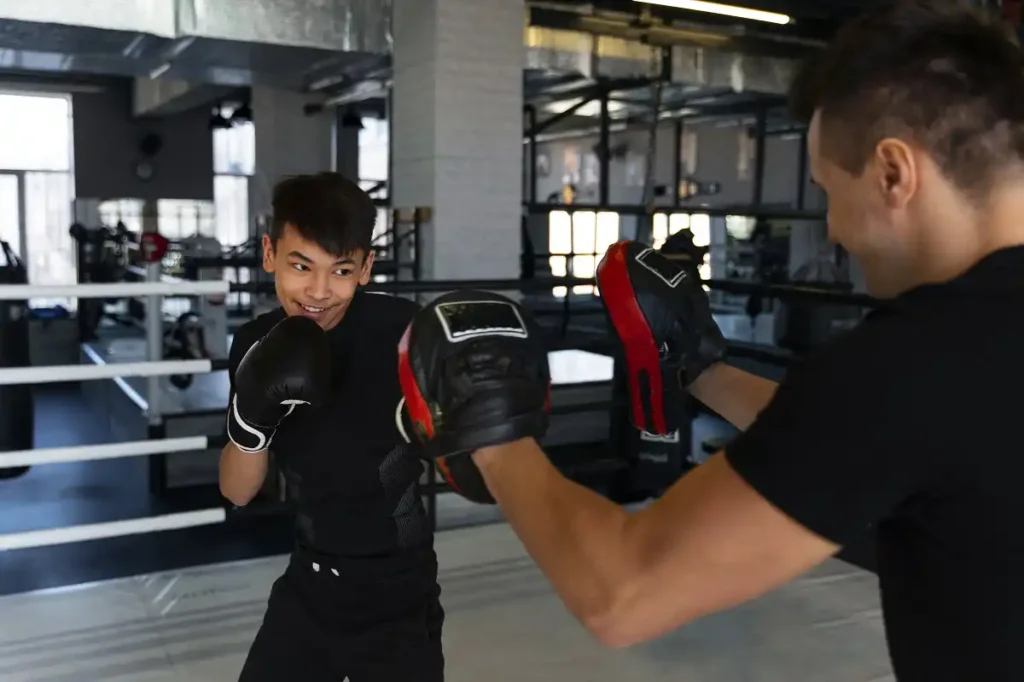In an era where uncertainty and risk seem to grow by the day, self-defense has evolved from a specialized skill into a fundamental life necessity. Beyond physical techniques, effective self-defense education empowers individuals with confidence, situational awareness, and psychological resilience — tools essential for surviving and thriving in today’s complex world.
From corporate professionals navigating urban environments to college students and parents concerned about personal safety, the demand for evidence-based self-defense programs has never been higher. But not all systems are created equal. Some focus solely on physical strength, while others emphasize awareness and prevention — the true foundation of real-world protection.
Why Self-Defense Is More Than Fighting Back
Many people mistakenly equate self-defense with physical confrontation. In reality, true self-defense begins long before an attack occurs. It starts with awareness — understanding your surroundings, recognizing threats, and identifying potential escape routes.
Self-defense also includes boundary setting, verbal de-escalation, and psychological preparedness. These non-physical components often determine the outcome of dangerous situations. Studies have shown that people who exhibit confidence, alert posture, and calm assertiveness are statistically less likely to be targeted by aggressors.
Self-defense education, therefore, isn’t about promoting violence — it’s about preventing it. It teaches individuals to think critically under pressure and use minimal force only when necessary.
The Psychological Benefits of Self-Defense Training
While the physical benefits of self-defense training — such as improved coordination, strength, and stamina — are well-known, the psychological effects are even more profound. Regular training cultivates self-assurance and emotional control. It helps individuals overcome fear, trauma, and anxiety related to personal safety.
This is particularly important for people recovering from past abuse or violence. Trauma-informed self-defense programs, such as those offered by Shaan Saar in Orlando, Florida, take a compassionate, evidence-based approach to self-protection. Their methodology integrates psychological awareness, criminal behavior analysis, and social coaching to empower participants mentally as much as physically.
By addressing emotional triggers and stress responses, these programs help individuals not only defend themselves but also reclaim control over their own lives — a process of empowerment that extends far beyond the mat.
Krav Maga: The Science of Practical Defense
Originally developed for the Israeli Defense Forces, Krav Maga has become one of the world’s most respected self-defense systems due to its simplicity, adaptability, and real-world effectiveness. Unlike traditional martial arts that emphasize form and competition, Krav Maga is built on survival principles and natural human movements.
Its core philosophy is straightforward: neutralize the threat as quickly as possible and escape safely.
Krav Maga focuses on instinctive reactions, such as redirecting an attack, targeting vulnerable points, and maintaining awareness of the environment. Training sessions simulate real-life scenarios — street attacks, grabs, chokes, or weapon threats — preparing practitioners for the unpredictability of real violence.
At Shaan Saar Krav Maga, instructors go beyond physical drills. Their classes integrate No Gi Jujitsu, criminal behavior profiling, and situational intelligence, creating a comprehensive curriculum that reflects how real threats develop in everyday environments. This fusion of tactical science and behavioral psychology sets them apart from conventional self-defense schools.
The Role of Evidence-Based and Trauma-Informed Training
One of the most unique aspects of Shaan Saar’s approach is its evidence-based foundation. Rather than relying on outdated combat traditions or movie-style techniques, the school builds its curriculum on data-driven insights from criminology, psychology, and law enforcement research.
For instance, understanding the behavioral cues of aggression — such as proximity, tone escalation, or body language — allows students to detect danger before it fully manifests. Similarly, studying human trafficking investigation techniques equips participants with the knowledge to identify manipulation tactics, coercion, and grooming behaviors.
Their EBSD (Evidence-Based Self-Defense) Social Coaching program bridges the gap between awareness and action. It teaches participants to respond logically under pressure, manage panic responses, and make sound decisions when facing real threats. By emphasizing education alongside physical skill, this method empowers individuals to protect themselves without relying solely on brute strength.
The Connection Between Mindset and Safety
Effective self-defense begins with a mindset. A prepared mind reacts faster, stays calmer, and makes better choices in moments of danger. Training environments that simulate stress — such as surprise drills or real-world scenarios — help condition the brain to process fear and respond efficiently.
This concept, known as stress inoculation, is central to Shaan Saar’s teaching philosophy. Students are gradually exposed to controlled challenges, allowing them to build resilience and confidence over time. Instead of freezing or panicking, trained individuals learn to act instinctively and purposefully.
Moreover, mindset training extends beyond the physical realm. It reinforces emotional intelligence, assertive communication, and empathy — qualities that enhance interpersonal relationships and professional effectiveness. In essence, self-defense becomes a path to overall personal growth.
Self-Defense and the Modern Professional
In the corporate world, personal safety often takes a backseat to productivity and performance. However, professionals who travel frequently, work late hours, or interact with the public are at heightened risk of personal security incidents.
Workplace self-defense programs and seminars have become increasingly popular as businesses recognize the importance of employee safety and well-being. Organizations that invest in such training not only protect their staff but also foster confidence, teamwork, and mental clarity.
Leaders trained in self-defense principles tend to demonstrate improved decision-making, situational awareness, and leadership under pressure — qualities that translate directly into professional success. Thus, integrating self-defense education into corporate wellness programs is both a safety measure and a strategic investment.
Empowerment Through Education: A Holistic Approach
True empowerment comes from knowledge and preparedness. The goal of self-defense education is not to turn people into fighters, but to help them feel secure in any situation. This holistic perspective addresses physical ability, mental strength, and emotional intelligence in equal measure.
At its core, the Shaan Saar philosophy emphasizes respect, ethics, and community. Students are encouraged to use their skills responsibly — as tools for protection, not aggression. This moral framework ensures that empowerment does not lead to recklessness but to confident, conscientious living.
The Growing Relevance of Self-Defense in Society
Unfortunately, modern society presents an increasing number of threats — from street assaults to domestic violence, from bullying to online harassment. Awareness campaigns and education can only go so far without practical skills to back them up. Self-defense training fills that gap.
For women, seniors, and vulnerable populations, learning to defend oneself can be life-changing. Beyond personal protection, it fosters independence and self-worth. For men and security professionals, advanced systems like Krav Maga and Jujitsu refine tactical skills while promoting restraint and ethical responsibility.
Communities that encourage self-defense education ultimately create safer environments. When more people understand how to identify, avoid, and manage danger, crime prevention becomes a collective effort rather than an individual challenge.
Why Choose Shaan Saar Krav Maga
In a sea of martial arts schools and fitness centers, Shaan Saar stands out for its commitment to realism, compassion, and education. Based in Orlando, Florida, this training center bridges the gap between physical defense and psychological understanding.
Their certified instructors bring expertise from military, law enforcement, and behavioral science backgrounds. Every session integrates elements of criminal behavior analysis, threat assessment, and trauma-informed coaching, ensuring students receive not only skill-based training but also emotional support.
Shaan Saar’s community-centered approach welcomes participants of all backgrounds and fitness levels. Whether you’re a beginner looking to feel safer in daily life or a professional seeking advanced tactical training, their programs are designed to adapt to your personal goals and comfort level.
The Future of Self-Defense: Integrating Technology and Human Understanding
As the world becomes more interconnected, self-defense training continues to evolve. Virtual classes, wearable safety devices, and AI-assisted awareness tools are expanding accessibility. Yet, the human element — awareness, confidence, and compassion — remains irreplaceable.
In the future, evidence-based self-defense will likely combine technology with behavioral science to create even more personalized learning experiences. The goal will always remain the same: to empower people to live without fear, armed with knowledge and self-trust.
Final Thoughts
Self-defense is not about aggression — it’s about empowerment, awareness, and self-respect. In uncertain times, these qualities form the foundation of personal




… [Trackback]
[…] Information to that Topic: businessworldclass.com/the-power-of-self-defense-education-building-confidence-awareness-and-safety-in-the-modern-world/ […]
… [Trackback]
[…] Find More on to that Topic: businessworldclass.com/the-power-of-self-defense-education-building-confidence-awareness-and-safety-in-the-modern-world/ […]
… [Trackback]
[…] Here you will find 8681 additional Info on that Topic: businessworldclass.com/the-power-of-self-defense-education-building-confidence-awareness-and-safety-in-the-modern-world/ […]
… [Trackback]
[…] Information to that Topic: businessworldclass.com/the-power-of-self-defense-education-building-confidence-awareness-and-safety-in-the-modern-world/ […]
… [Trackback]
[…] Find More on that Topic: businessworldclass.com/the-power-of-self-defense-education-building-confidence-awareness-and-safety-in-the-modern-world/ […]